Suggestions for your repertoire in autumn 2024
How can our new releases be combined with other choral works?
Maurice Ravel: L’Aurore
op. 45
Carl Maria von Weber: Missa sancta Nr. 2
Jubel-Messe WeV A.5
Offertorium (Op. 76), 1818/19
Johann Sebastian Bach: Let us watch him, let us guard him
Hercules at the crossroads (Dramma per musica)
BWV 213, 1733
Antonín Dvorák: Te Deum
Arrangement for chamber orchestra (arr. Joachim Linckelmann)
op. 103, 1892/2024
Bobbi Fischer: Te Deum
Soli (SB), choir, congregation, trumpet, tenor saxophone, pianoforte, double bass and percussion
Bobbi Fischer: Magnificat
Solo (S), choir, alto saxophone/ flute, 2 violins, piano, double bass and percussion
New discoveries, arrangements and well-known works in up to date editions: they’re all included in our program preview for autumn 2024. Some choral works are not long enough for a full concert on their own, but they invite pairings with other compositions and they can be ideal for rounding off a concert program. We present our suggestions for your repertoire.
Maurice Ravel: L’Aurore
Ravel’s composition, written for the Prix de Rome competition, is only six minutes long, but its large romantic orchestra certainly makes an impression. A challenge for program planning! It could be combined with the Messe solennelle by Charles Gounod, which lasts forty-five minutes, but César Franck’s Mass in A Major is also a possibility due to the similar instrumentation (the piccolo, cor anglais, two of the four French horns and tuba from the Ravel are the only instruments not required for Franck’s work). An interesting parallel with the Prix de Rome entry could be Georges Bizet’s Te Deum, but Ravel’s Daphnis et Chloé is also a good choice. An alternative starting point could be the theme of “morning mood and nature poetry”, and we have prepared various lists linking a number of recommendations. Alongside works evoking the morning mood, other suitable pieces might describe the evening or night atmosphere, or spring, or nature and gardens in general.
Carl Maria von Weber: Missa sancta No. 2
With a performance time of only twenty-six minutes, Carl Maria von Weber’s Missa sancta No. 2 can’t fill a concert program on its own. You might like to take up the theme of jubilation, as Weber’s mass is jubilant in more ways than one: it was dedicated to the golden wedding anniversary of the Saxon royal couple, and 2026 is a jubilee year in honor of the famous composer. Other possible celebratory works for such a program include Te Deum compositions, as well as Cherubini’s Krönungsmesse (Coronation Mass), which lasts for forty-five minutes, or Bruckner’s festive Missa solemnis (half an hour). Of course, you can also choose Weber’s Freischützmesse or Dvořák’s Mass in D, both of which display a jubilant and joyous approach. And a mass by Franz Schubert, such as his Mass in E flat major or Mass in G major – thematically related and in the same Romantic tradition – would offer another beautiful combination with Weber’s mass.
Johann Sebastian Bach: Let us watch him BWV 213
J. S. Bach here devotes a whole forty-five minutes to the development of Hercules’ strength of character and the triumph of his virtue. Many works lend themselves to a longer concert exploring similar themes such as virtue, lust and vice. For example, Monteverdi’s or Hasse’s compositions Beatus vir (Blessed is the man..) are a perfect thematic addition. They would also combine beautifully with instrumental sinfonia movements by Hasse. Or another of Bach’s own secular cantatas, such as his Hunting Cantata, could complement his composition about Hercules. Alternatively, his sacred cantata Es ist dir gesagt, Mensch, was gut ist (He showeth to thee, man, what right is), or the Sonata in C by C. P. E. Bach would also be suitable items to fill a program. Another work based on material from classical mythology, but this time in a contrasting Romantic style, is Die Parzen (Song of the Fates) by Johannes Brahms. Together with Bach’s cantata, this would result in a varied concert program lasting about an hour.
Antonin Dvořák: Te Deum (arr. Linckelmann)
The chamber music settlng of the Te Deum offers a wonderful opportunity to experience twenty intense minutes of musical praise to God. For impressive masses in a smaller setting, we recommend Giacomo Puccini’s Messa a 4 voci or Ludwig van Beethoven’s Mass in C to ensure a varied and moving concert experience. The work can also be perfectly combined with Dvořák’s Mass in D (arranged for wind quintet) to create an hour-long concert. Or for a varied mixture of sacred and secular elements, the Te Deum can also be combined with choral songs by Dvořák, such as his Four Choral Songs, the Five Choral Songs (In Nature) or the Four Sacred Pieces.
If the evening is not to be dedicated exclusively to the Bohemian composer, then there are other impressive Te Deum settings which could complete the program. These include the famous baroque Te Deum by Charpentier, or Handel’s Dettinger Te Deum or his Utrecht Te Deum. There are more beautiful Te Deum settings from the Viennese Classical period, for example by Wolfgang Amadeus Mozart or Johann Michael Haydn, which are also ideal for such a program.
Bobbi Fischer: Te Deum
That leads us directly to Bobbi Fischer’s contemporary praise of God, which can act as a bridge to the historical Te Deum settings. In addition to Mozart’s Te Deum and Zelenka’s Te Deum, the chamber version of Bruckner’s Te Deum, for example, is also suitable, as is Charpentier’s aforementioned Te Deum. The Missa Sancti Jacobi or the Missa St. Francisci Assisiensis by Damijan Močnik and the Missa in Jazz by Peter Schindler lend themselves to pairings with other contemporary compositions. The Pastoral Mass by Vytautas Miškinis would also be an excellent choice to create a varied and exciting concert.
Bobbi Fischer: Magnificat
Bobbi Fischer’s Magnificat, in which he combines groovy rhythms with a devotional mood, similarly creates a musical bridge to earlier settings of this special hymn of praise. These include Monteverdi’s Magnificat a sei voci, Vivaldi’s Magnificat and the Magnificat in B flat by Francesco Durante, as well as the settings by Charpentier or Bruckner. Historical mass settings can also offer an appealing contrast with some pleasant musical surprises. Examples of this are Johann Christoph Altnickol’s Missa in D minor, Leopold Mozart’s Missa in A or Haydn’s Missa brevis. Tilman Jäger’s Missa Pacis could also bring a spiritual message of peace.
Bobbi Fischer: Missa latina
The special scoring and the haunting message of the Missa latina can be combined with wonderful mass settings by composers such as Claudio Monteverdi, Johann Nepomuk Hummel, Cesar Franck and Franz Schubert. In addition, contemporary masses such as Damijan Močnik’s Missa Sancti Jacobi or his Missa St. Francisci Assisienses, or Thomas Schäfer’s Missa romana would all offer an interesting way of completing an intense concert program. Another possible combination with similar instrumentation would be a pairing with Martin Palmeri’s Nisi Dominus or Jon Hoybye’s Easter Music.
Christoph Schönherr: Magnificat
For a women’s choir a magical evening could begin with Schönherr’s Magnificat, which would combine beautifully with other great choral works for female voices – Rheinberger’s two masses in G and E flat, the Messe brève by Leo Delibes or the Messe Sainte Cécile by Charles Gounod spring to mind. Other moving sacred works are the Ave verum by Saint-Saëns, the psalm setting Jauchzet Gott, alle Lande by Felix Mendelssohn and Clerambault’s six motets. Any program of songs could also include Schubert’s Ständchen or a varied selection from Carus’ own Loreley vol. II, a choral collection of German folk songs for women’s choir.
Albert Lortzing: Hymne
Albert Lortzing’s wonderful song of praise lends itself to a pairing with sacred choral-orchestral works, such as Bruch’s Rorate, Bruckner’s Missa solemnis or Nikolai’s Mass in D. Longer works like Cherubini’s Krönungsmesse (Coronation Mass) or Dvořák’s Mass in D are suitable for a concert evening of ceremonial and anthemic compositions.
Bobbi Fischer: Missa latina
Solo S, choir, violin, bandoneon (accordion), piano, double bass, percussion
Christoph Schönherr: Magnificat (women’s choir)
Solo A, choir (SSAA), 2 trumpet/flugelhorn, saxophone/flute, 2 violins, viola, violoncello, piano (keyboard), electric bass (Cb), percussion


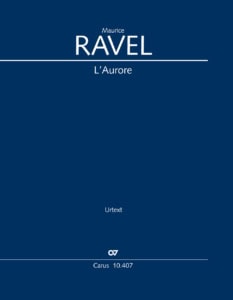
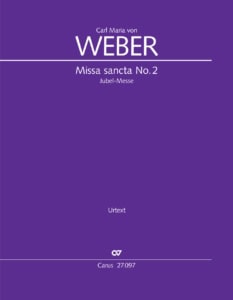
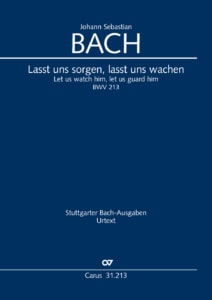
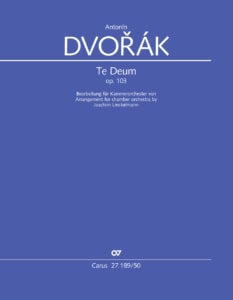
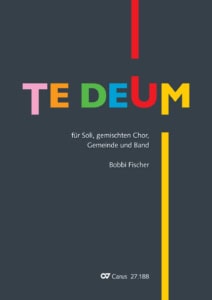
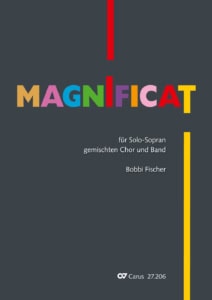
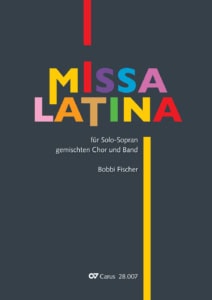
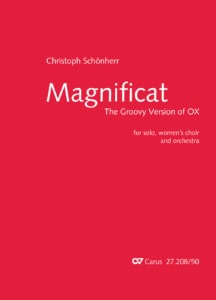
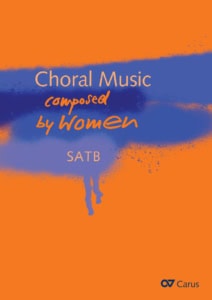
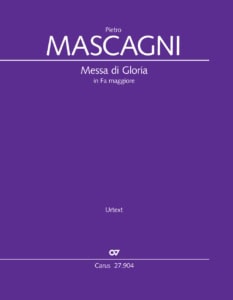
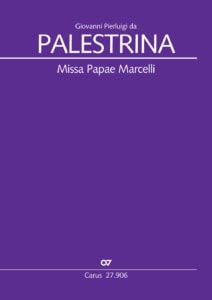 Giovanni Pierluigi da Palestrina’s Missa Papae Marcelli is one of the most famous works of the Renaissance age. And it’s not just the early 17th-century myth that this piece “saved” polyphonic sacred music from being banned by the Council of Trent which makes a performance of the Mass so appealing. Even apart from this legend and the work’s great history, it still captivates today due to the skilled setting of the text combined with a complex, multi-layered polyphony.
Giovanni Pierluigi da Palestrina’s Missa Papae Marcelli is one of the most famous works of the Renaissance age. And it’s not just the early 17th-century myth that this piece “saved” polyphonic sacred music from being banned by the Council of Trent which makes a performance of the Mass so appealing. Even apart from this legend and the work’s great history, it still captivates today due to the skilled setting of the text combined with a complex, multi-layered polyphony.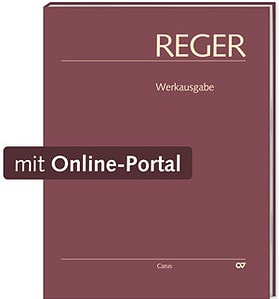 The fifth volume of the “Songs and choral Works” module of the Reger-Werkausgabe (RWA) comprises the songs composed between June 1906 and May 1915 as well as the vocal scores of the orchestral songs An die Hoffnung (To hope) op. 124, and Hymnus der Liebe (Hymn of love) op. 136. Alongside additional songs from Schlichte Weisen (Simple ways) op. 76 (Volumes III-VI), this new volume features occasional and commissioned works.
The fifth volume of the “Songs and choral Works” module of the Reger-Werkausgabe (RWA) comprises the songs composed between June 1906 and May 1915 as well as the vocal scores of the orchestral songs An die Hoffnung (To hope) op. 124, and Hymnus der Liebe (Hymn of love) op. 136. Alongside additional songs from Schlichte Weisen (Simple ways) op. 76 (Volumes III-VI), this new volume features occasional and commissioned works.

Leave a Reply
Want to join the discussion?Feel free to contribute!